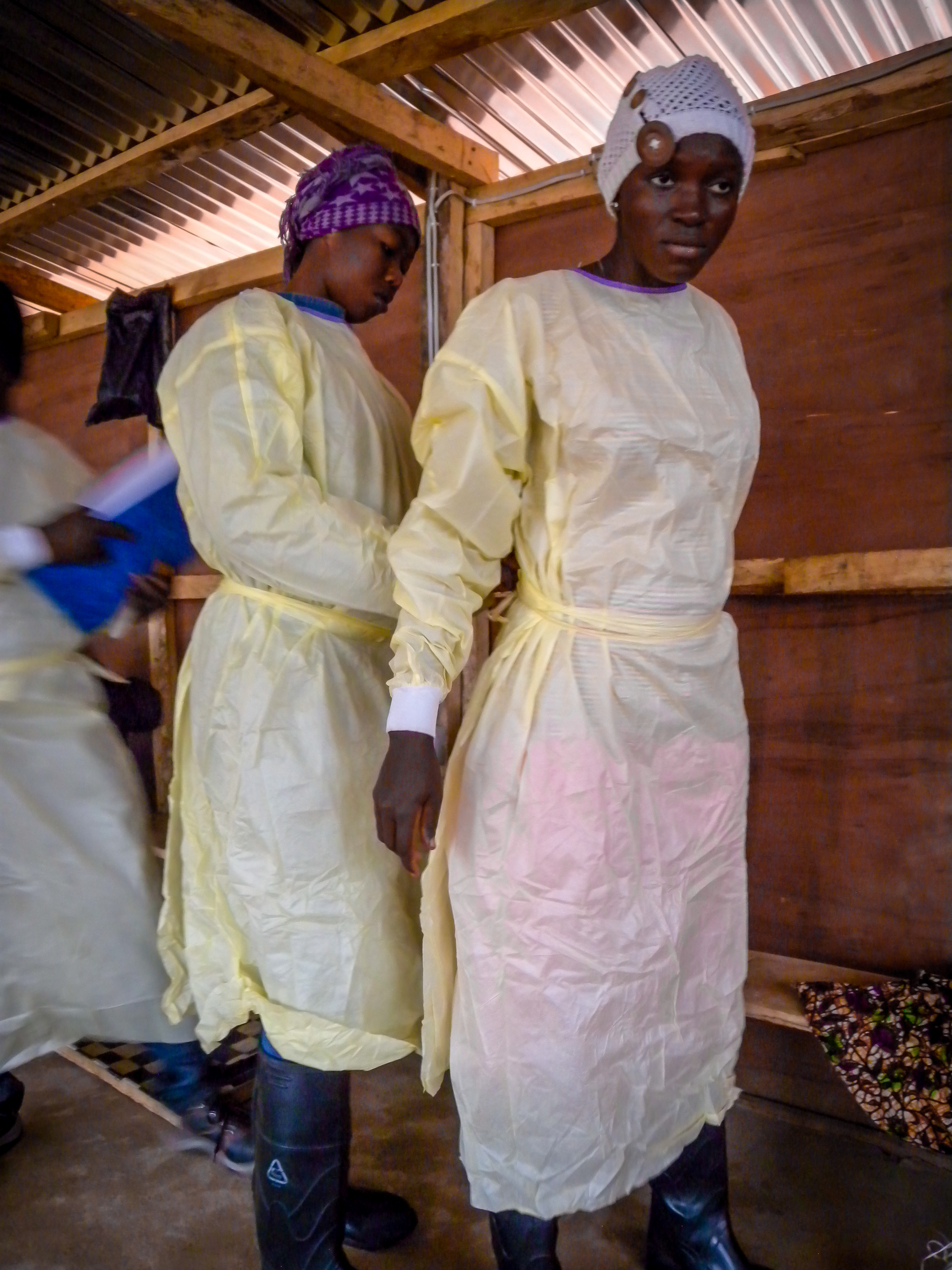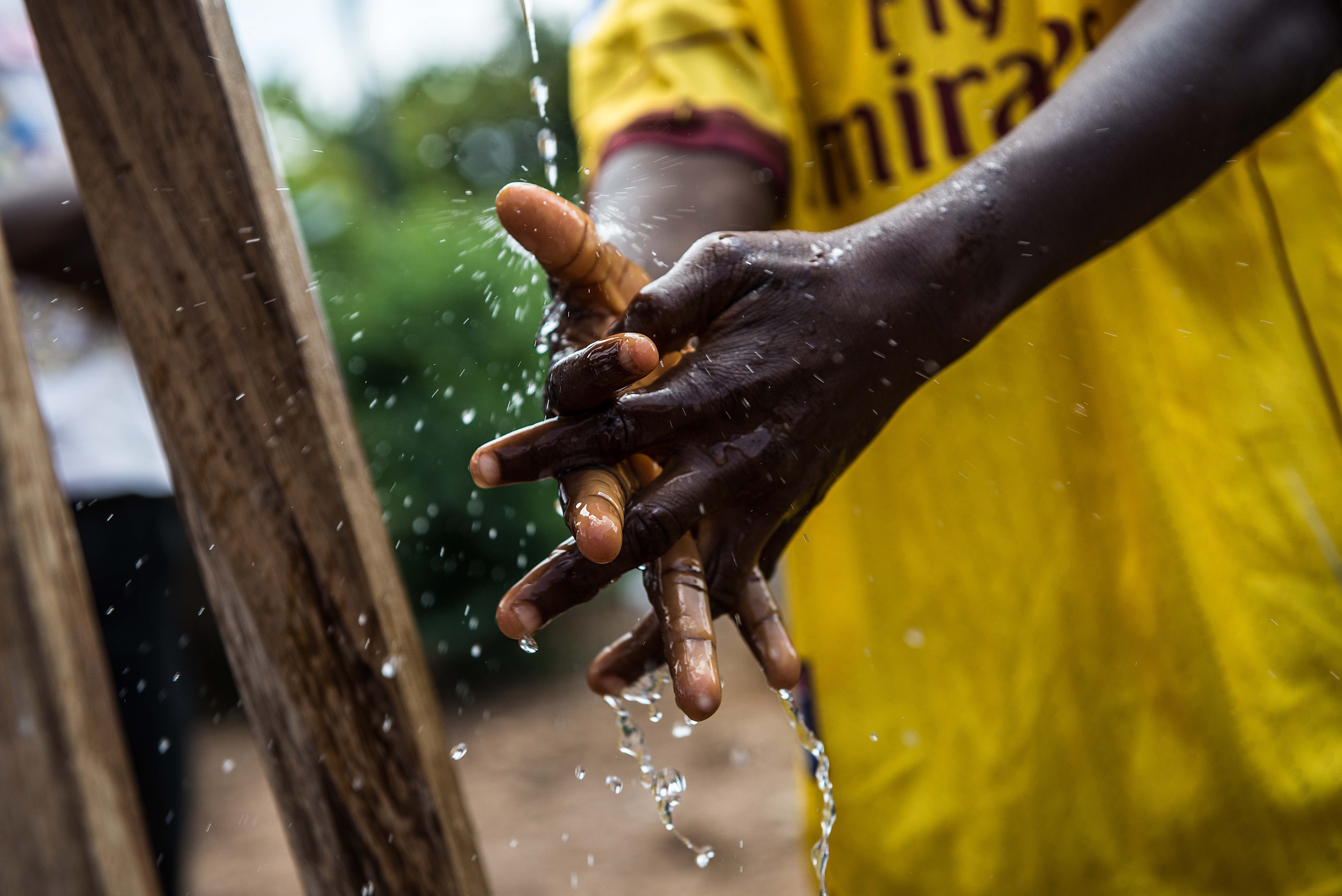Ebola: my return to Sierra Leone

Eight years after her last visit, Nana Anto-Awuakye from CAFOD’s Communications team writes about returning to Sierra Leone to meet people on the front line in the struggle against the Ebola virus.
Please pray for all those affected by the Ebola virus
Before I left London, my colleague Amie came up to my desk and gave me a goodbye hug, saying: “We Sierra Leoneans love to hug.”
It has been difficult for people in Sierra Leone to hug over the last few months. Even though the Ebola virus has now been contained in most parts of the country, the “no touch” policy is still in place. When I arrive, I will have to check my automatic instinct to shake people’s hands, or to put a comforting hand on people’s shoulders when listening to their stories.
Recovering from war
I first visited Sierra Leone in 2007, several years after the country’s devastating civil war – a conflict in which tens of thousands of people died, and in which the brutal hacking off of limbs was all too common.
In the capital Freetown, watching the sunset turn the sky auburn over the city’s beautiful golden beaches, I remember finding it hard to imagine that this had once been a place of fear and bloodshed. At the time, everyone I met talked about “not wanting to go back”. They were confident in the peace that had been secured, and spoke only of a future of reconciliation and development.
Travelling to Kenema in the Eastern Province, I remember being greeted by the rolling green hills of Kambui, and in the town centre by whole streets lined with diamond buyers’ shops. I learned that Kenema was an important agricultural market town, as well as the centre for the timber industry and for the production of coffee and palm oil.
Epicentre of the virus
Last year Kenema was one of the areas at the epicentre of the Ebola virus. It was effectively locked down. Blockades on the main road ensured that no one entered or left the district, decimating its once thriving economy.

In Sierra Leone today, the talk is of Ebola recovery. Schools have now reopened, and daily life is slowly getting back to normal. But, to ensure that there are no spikes in new Ebola cases, ongoing education, prevention work and adherence to basic hygiene rules still dominate people’s lives.
Not forgetting Sierra Leone
Thanks to the generosity of Catholics in England and Wales, CAFOD’s partners continue to be a part of the Ebola education and prevention efforts, and to work on the recovery, supporting people to rebuild their lives.
When Archbishop Edward Thamba Charles, Director of Caritas Freetown, visited us earlier in the year to meet with MPs, he thanked CAFOD supporters and the UK government for “not forgetting about the people of Sierra Leone”.
The people of Sierra Leone I was introduced to in 2007 had shown extraordinary courage and resilience in the face of a ten-year civil war. I’m sure that over the next week visiting Freetown and Kambia, I’ll meet many more extraordinary people and hear stories about their bravery in the struggle to reach zero new cases of this devastating virus.